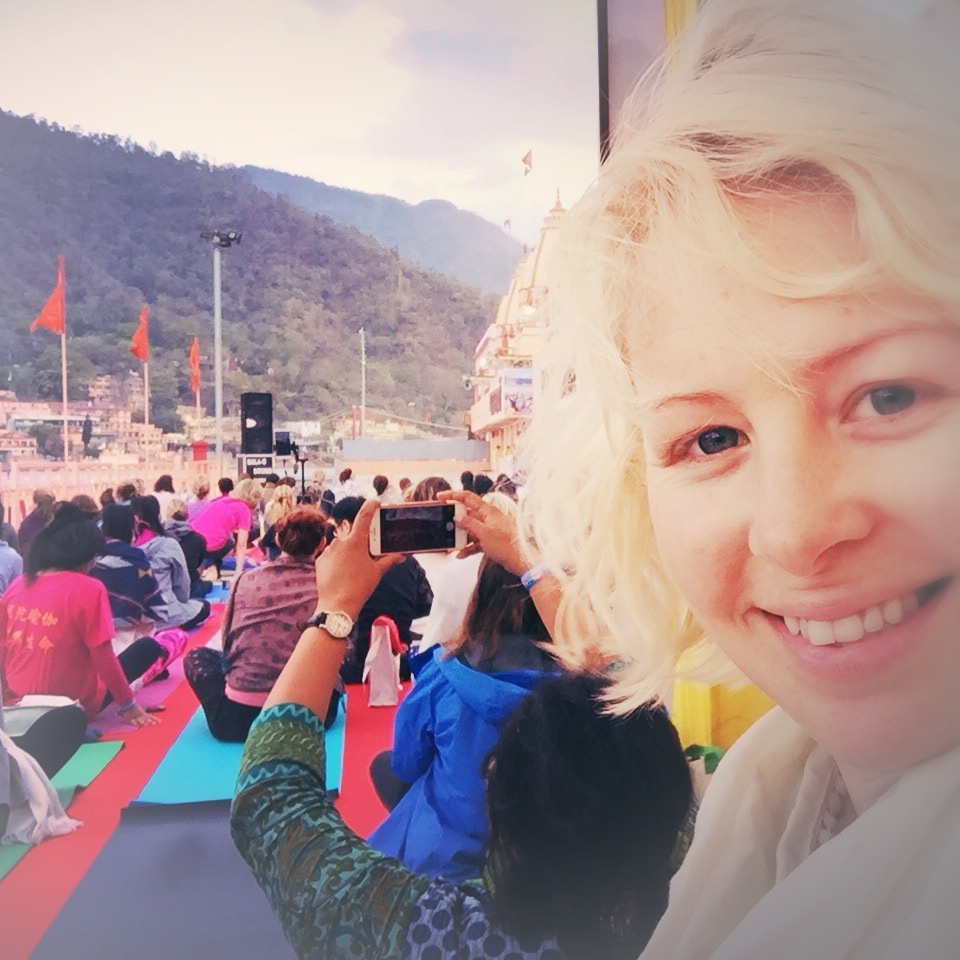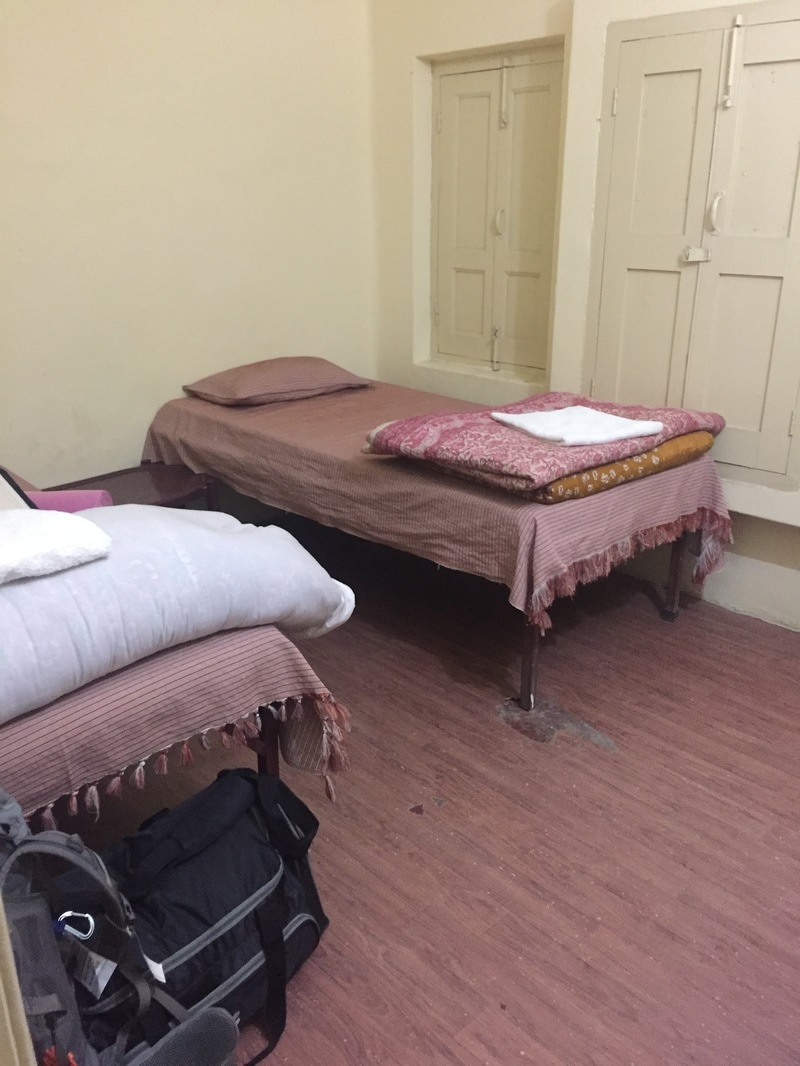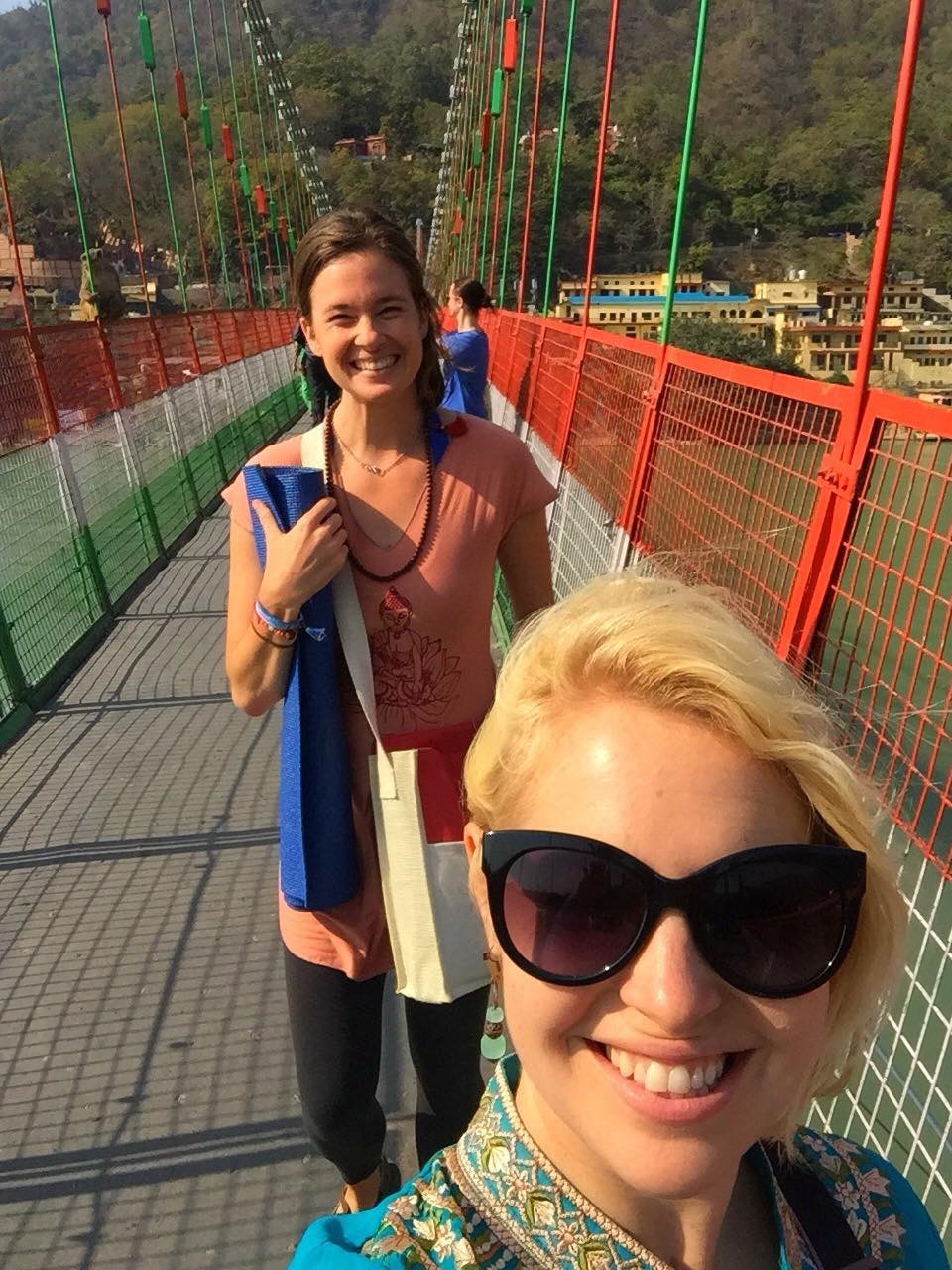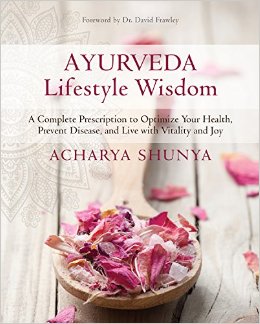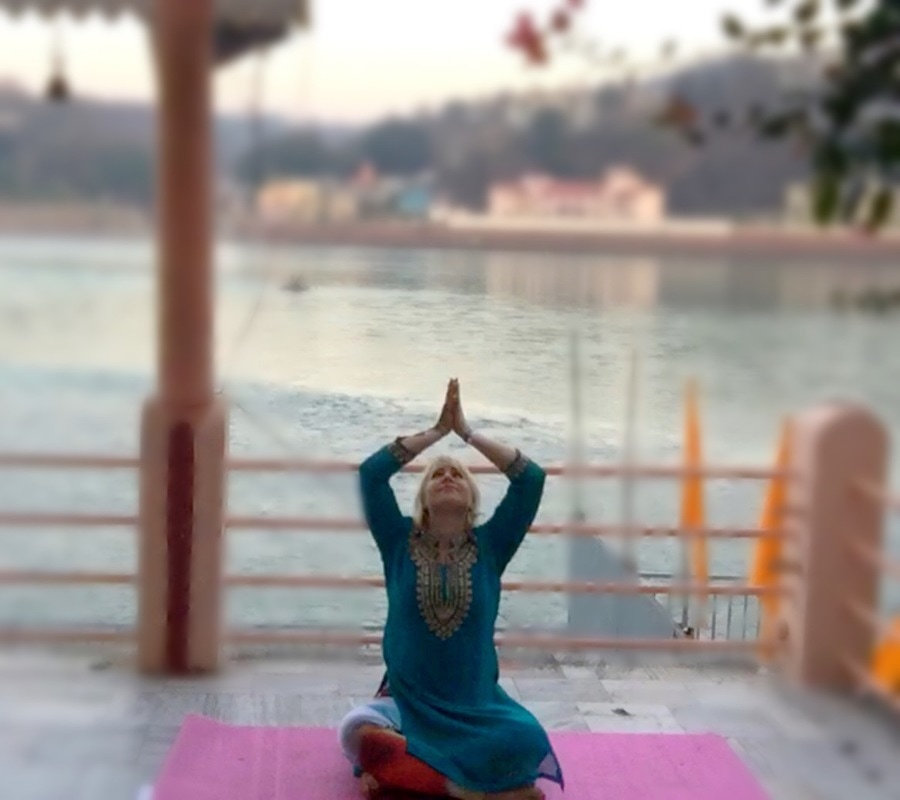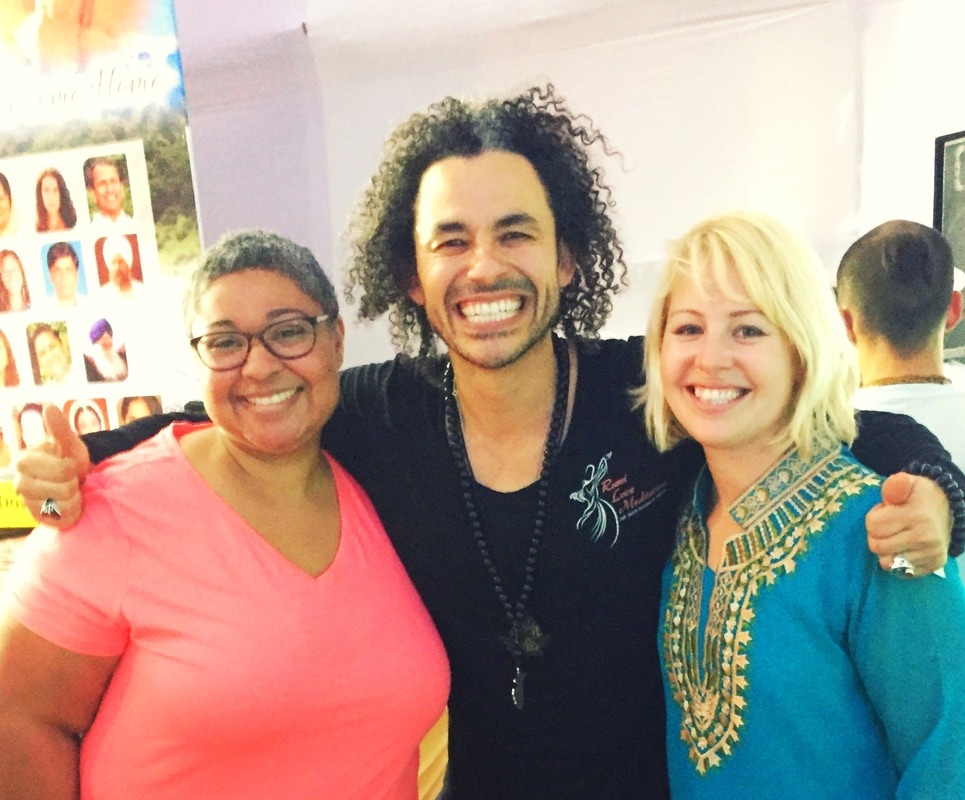As each day passed at the 29th International Yoga Festival of Parmarth Niketan in Rishikesh, India, we settled into a routine and the days started to blend together. Is it the 3rd, 4th, 5th, or 6th day of the festival? Is it Monday, Tuesday, Wednesday, or Thursday?
My roommate, Crystal, and I rose every morning just before 6am, attended a meditation class, ate breakfast, attended a 2-hour physical yoga class, took notes at a following lecture, ate a hearty lunch, participated in a restful yin or nidra yoga class, and in the late afternoon went for a walk, attended another lecture, or meditation. In the evening, the Ashram would hold a gathering on the banks of the Ganges River, followed by dinner and a cultural show. We would be in bed with the lights out before 10pm.
My roommate, Crystal, and I rose every morning just before 6am, attended a meditation class, ate breakfast, attended a 2-hour physical yoga class, took notes at a following lecture, ate a hearty lunch, participated in a restful yin or nidra yoga class, and in the late afternoon went for a walk, attended another lecture, or meditation. In the evening, the Ashram would hold a gathering on the banks of the Ganges River, followed by dinner and a cultural show. We would be in bed with the lights out before 10pm.
Coincidentally, as I began reading a book called, Ayurveda Lifestyle Wisdom: A Complete Prescription to Optimize Your Health, Prevent Disease, and Live with Vitality and Joy (www.amazon.com/Ayurveda-Lifestyle-Wisdom-Complete-Prescription/dp/1622038274/ref=asap_bc?ie=UTF8) I realized that the Yoga Festival schedule was somewhat aligned with the Ayurveda daily routine. Acharya Shunya started learning Ayurveda techniques from her enlightened grandfather and throughout this book, she shares his stories and words of wisdom that have been handed down for thousands of years.
Shunya teaches about the importance of living a daily routine in accordance with nature's time clock. In this contemporary world with light bulbs, commutes, and computer screens, we have become distracted and divided in our routines, far from the truth and beauty of Mother Earth. Shunya recommends rising early for cleansing and meditation, then exercise and breakfast. Until lunchtime, she advises completing intellectually challenging work, then after lunch, go for a walk and complete tasks that don't require too much brain power. After dinner, engage in pleasant activities like reading or meeting with friends and family. I highly recommend soaking up this entire book that includes amazing tips about consuming and releasing food along with much more about routines and peaceful healthy living.
The word Ayurveda means "knowledge of life" as through these practices, we can enrich the quality of our lives to that of healthy joyful consciousness and unity in our bodies without drugs, side effects, or insurance companies. The bottom line is "The closer we are to Nature and her ways, the healthier we will be. The farther we wander away from Nature, the more we will suffer." This enlightening book is filled with a wealth of more information about how to connect with nature and the divine within.
Shunya teaches about the importance of living a daily routine in accordance with nature's time clock. In this contemporary world with light bulbs, commutes, and computer screens, we have become distracted and divided in our routines, far from the truth and beauty of Mother Earth. Shunya recommends rising early for cleansing and meditation, then exercise and breakfast. Until lunchtime, she advises completing intellectually challenging work, then after lunch, go for a walk and complete tasks that don't require too much brain power. After dinner, engage in pleasant activities like reading or meeting with friends and family. I highly recommend soaking up this entire book that includes amazing tips about consuming and releasing food along with much more about routines and peaceful healthy living.
The word Ayurveda means "knowledge of life" as through these practices, we can enrich the quality of our lives to that of healthy joyful consciousness and unity in our bodies without drugs, side effects, or insurance companies. The bottom line is "The closer we are to Nature and her ways, the healthier we will be. The farther we wander away from Nature, the more we will suffer." This enlightening book is filled with a wealth of more information about how to connect with nature and the divine within.
The natural Ayurvedic routine sounds similar to a typical day for me back home, except a few subtle, but key differences. At home, I would usually rise between 6 and 7am, check my Facebook and emails, make and drink a cappuccino and begin writing. In this modern society, we use technology to separate ourselves from nature and ignore these important ways of living.
Lately, I've noticed that I initially wake up well before 6am, but I would start tossing and turning as I believed it was not yet time to get up. However, I just read an article by Do You Yoga that proclaims if we awake between 3am and 6am, this could be a sign of spiritual awakening. This frame of time is tied to the lungs and if we get up to practice mindful breathing exercises through meditation, this calls to our inner Self for guidance towards a more peaceful, joyful, and loving life.
Have you ever wondered why the birds start chirping and cooing before the sun rises in the morning? They are singing from the joy of their hearts, welcoming the light in rhythm with the grass, trees, and plants. Just like the birds, Ayurveda philosophy urges the importance of waking up while it is still dark outside, sometime before 6am to witness universal consciousness as the sky becomes infused with divine light. By spending the early morning in a meditative state, we take time to show gratitude and reverence to the life force. Through our breath and concentration, we return to balance that enhances our immunity.
Lately, I've noticed that I initially wake up well before 6am, but I would start tossing and turning as I believed it was not yet time to get up. However, I just read an article by Do You Yoga that proclaims if we awake between 3am and 6am, this could be a sign of spiritual awakening. This frame of time is tied to the lungs and if we get up to practice mindful breathing exercises through meditation, this calls to our inner Self for guidance towards a more peaceful, joyful, and loving life.
Have you ever wondered why the birds start chirping and cooing before the sun rises in the morning? They are singing from the joy of their hearts, welcoming the light in rhythm with the grass, trees, and plants. Just like the birds, Ayurveda philosophy urges the importance of waking up while it is still dark outside, sometime before 6am to witness universal consciousness as the sky becomes infused with divine light. By spending the early morning in a meditative state, we take time to show gratitude and reverence to the life force. Through our breath and concentration, we return to balance that enhances our immunity.
At this 29th Annual Yoga Festival in Rishikesh, India, Tommy Rosen taught a chant in his class titled The Wonderland of the Consciousness, "Ong namo guru dev namo," which translates in English to 'I bow to the divine in everything.' What a beautiful mantra for the early morning ensemble of gratitude. I'll share some more techniques for early morning meditations and practices in future blog posts.
The similarities between my previous routine and the Yoga Festival/Ayurvedic routine included doing more intense work in the late morning, and more social or chore/errands in the evening with a slower, more calming late afternoon. Between 2 and 6pm, I usually enjoy going for a walk and reclining into some slow Yin Yoga Postures, such as putting my legs up the wall while reading some of a book. This is also a good time to complete chores and run errands. Then as evening begins to fall, so does the darker side of our being. This is a great time to gather support and connection by sharing a meal and discussion with friends and family.
The similarities between my previous routine and the Yoga Festival/Ayurvedic routine included doing more intense work in the late morning, and more social or chore/errands in the evening with a slower, more calming late afternoon. Between 2 and 6pm, I usually enjoy going for a walk and reclining into some slow Yin Yoga Postures, such as putting my legs up the wall while reading some of a book. This is also a good time to complete chores and run errands. Then as evening begins to fall, so does the darker side of our being. This is a great time to gather support and connection by sharing a meal and discussion with friends and family.
